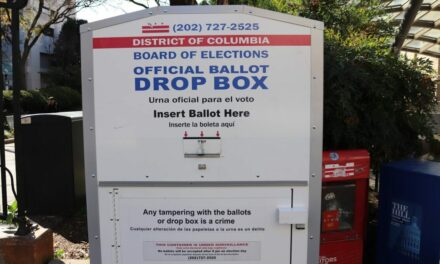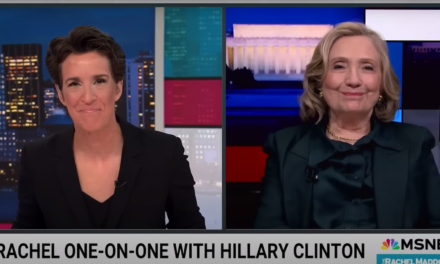We support our Publishers and Content Creators. You can view this story on their website by CLICKING HERE.
The Michigan Bureau of Elections (BOE) issued a critical change in its disclosure of absentee ballot records last week, according to an email from FOIA Coordinator Sherri Hines. The missive, sent to organizations with standing requests for absentee voter data, announced the BOE will no longer provide certain key data fields essential for election monitoring.
The message from the BOE, a division of the Michigan Department of State, indicated that “Daily AV” (absentee voter) reports — which included data related to absentee ballot applications sent and received, as well as ballots returned by voters — will no longer be available in their current form under FOIA requests. Instead, the reports are being replaced by information limited to ballots “issued but not returned” and “ballots cast before Election Day,” which includes returned absentee ballots and early voting. (FOIA Coordinator Sherri Hines, the email sender, did not return The Federalist’s inquiry about the message.)
Organizations like CheckMyVote.org and Michigan Fair Elections rely on these figures for their election integrity work.
“I don’t see the reasoning behind these changes. The BOE cites voter privacy as the reason, but the date the application is sent and returned has nothing to do with voter privacy, and these dates are no longer disclosed” for cast ballots, said Phani Mantravadi, CEO of Check My Vote.
For ballots cast, “We have no ballot ID. No date when it’s mailed,” Mantravadi added. “This is a huge risk to chain of custody.”
“This will affect all organizations who are relying on this data for election integrity work,” warned Marla Weber, a volunteer with Michigan Fair Elections’ voter roll hygiene program, called Soles to Rolls. Participants analyze their local voter rolls for errors and then can flag deceased, moved, duplicate, noncitizen, undeliverable, or ghost registrations for their local clerks, who are responsible for keeping the state’s Qualified Voter File clean.
All Michigan residents have access to Checkmyvote.org and can check to see if dead or moved voters are still registered at their homes or nearby addresses. Citizens can then notify their local clerks of the inaccuracies.
“It is very difficult, nearly impossible, to challenge a voter roll based on a name or identity of the voter,” explained The Conservative Treehouse recently. “But 1,000 registrations to an empty parking lot, vacant office building, Wal Mart or post office box are easier to identify, challenge and subsequently remove.”
‘What Are You Trying to Hide?’
The Republican Party of Michigan’s District 9 reacted strongly to the BOE’s announcement. Phil O’Halloran, a practicing surgeon and the election integrity chair for District 9, described the change as a severe blow to transparency.
“This is the digital equivalent of plastering pizza boxes on the windows at the TCF Center. What are you trying to hide, Jocelyn?”
O’Halloran’s reference alludes to the 2020 election controversy in Detroit, where allegations of ballot mishandling and lack of transparency were hotly contested. Secretary of State Jocelyn Benson’s sudden policy shift came as the District 9 Republican Party was preparing to launch a ballot tracking initiative using CheckMyVote.org’s technology in an attempt “to track the numbers of absentee ballots to ensure they are being sent only to eligible voters.”
With the 2024 election only 32 days away, some activists view this change as a move to limit oversight. Without this information, groups working to monitor absentee ballots will have a harder time ensuring that only legitimate ballots are counted. The daily data on ballots returned by voters is crucial not only for election integrity but also for get-out-the-vote activities.
Another version of this article appeared at Pure Integrity Michigan Elections.
Patrice Johnson is chair of Pure Integrity Michigan Elections and Michigan Fair Elections, two nonprofit organizations dedicated to preserving and protecting fair and honest elections.

 Conservative
Conservative  Search
Search Trending
Trending Current News
Current News 





